Sexually transmitted infections are very common throughout the world. Every year, hundreds of millions of people get infected with sexually transmitted diseases and illnesses around the globe.
There are dozens of STDs in existence, and they can be easily transmitted through unprotected sexual acts or through sharing needles or other drug-injecting equipment. Among the dozens of STDs, HIV is among the deadliest and most chronic sexually transmitted diseases.
HIV stands for human immunodeficiency virus, and as its name suggests, it’s a type of virus that attacks the human body’s immune system, making it prone to other diseases. If not treated timely, HIV can lead to acquired immune deficiency syndrome, also known as AIDS, which is the cause of death of thousands of people throughout the globe every year.
Although HIV is not curable, one can undergo treatments to ensure an undetectable viral load in the bloodstream, making one live a long, healthy life. However, it’s always better to be safe than sorry and be well-known for haphazard diseases like HIV and AIDS.
This article serves as a basis of knowledge for preventing yourself from contracting a sexually transmitted disease like HIV. So, without further ado, let’s jump to the main discussion.
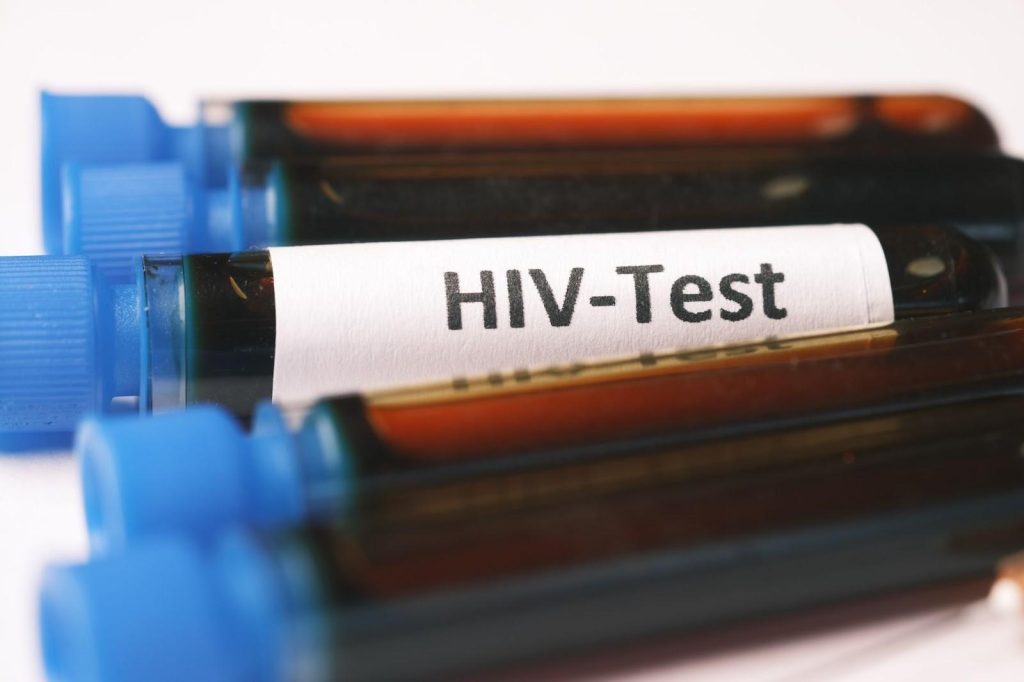
Contents
Familiarize Yourself With The Term – HIV
The human immunodeficiency virus can be transmitted from one person to another in several ways involving the contact of human body fluids through any channel. These fluids include:
- Blood
- Semen & Pre-seminal fluid
- Rectal fluids
- Breast milk
- Vaginal fluids
HIV transmission occurs when any fluids mentioned above are transferred from a body of an HIV-positive person with a detectable viral load to an HIV-negative person’s bloodstream. The transmission can occur through a mucous membrane found in the vagina or the tip of the penis, sores, open cuts, or by direct infusion by an injection exposed to the virus.
When HIV enters the human body, it attacks the immune system. The human body’s immune system comprises various white blood cells that fight against infections and diseases. HIV finds and gets inside the white blood cells, called CD4 cells, and multiplies itself. Eventually, the HIV cells kill the CD4 cells, and their copies continue to hunt other existing CD4 cells.
Resultantly, as the body cannot make enough CD4 cells to fight against HIV fast enough, the viral amount inside the body goes up exponentially, and the body’s immune system goes weaker and weaker with time. A weak immune system is prone to falling prey to germs, including even those germs that were harmless before being exposed to the virus.
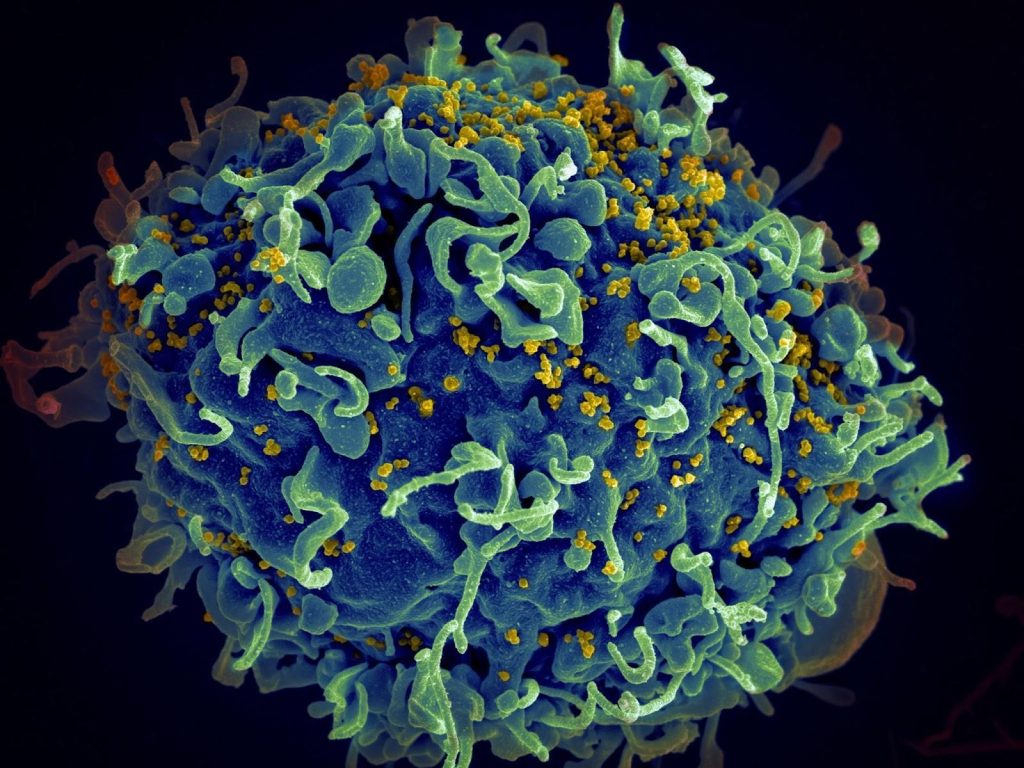
Acquired Immune Deficiency Syndrome (AIDS) And HIV
As we know, HIV is incurable, but it can be treated to not influence your life and others in a harmful way. However, untreated HIV can go on at later stages to turn into AIDS, which usually occurs when the human body is adversely affected due to the virus.
Most HIV medicines stop the progression of the disease and reduce the chances of HIV. However, if the number of CD4 cells falls below the range of 200 CD4 cells per cubic meter, then the subject is considered to have progressed to AIDS.
The typical life expectancy of a person who has progressed to AIDS is about three years. However, if the subject has a chronic opportunistic illness, the life expectancy without treatment falls even below one year.
At this point, HIV medicines can help ease the pain and can even be beneficial, but the sooner the virus is caught, and the treatment is started, the more advantageous it is. That shows us how HIV testing is essential nowadays.
How Does HIV Virus Get Transmitted?
As we already know, the HIV virus gets transmitted when certain body fluids of an HIV-positive person enter the bloodstream of a healthy human being. However, there are several different ways through which this can happen. So, without waiting any further, let’s discuss the actions which can lead to a person acquiring the HIV virus.
- Having Unprotected Sex
Having unprotected vaginal or anal sex is one of the leading causes of contracting the HIV virus. One must not have sex without condoms or medicines to prevent HIV with someone who has already acquired the virus and has a detectable viral load in his\her body.
This is because during sex, the semen or vaginal fluids can enter the body of the other person through the mucous membrane present in the vagina and the penis, and the virus can enter the bloodstream of the healthy partner and can lead to HIV.
Contracting other sexually transmitted diseases can also increase the risk of acquiring HIV if the person is not on any sort of STD treatment.
Women in particular are at a greater risk of acquiring HIV through heterosexual sex, the reason for it being the exposure to semen and pre-seminal fluid inside the vagina during sex. Through this, the virus can enter the bloodstream and start attacking the body’s immune system.
- Injection Drug Use
Sharing syringes and injections between HIV-positive and HIV-negative people is one of the primary reasons for contracting HIV. In contrast, receptive anal sex stands at first.
This is because the injection or syringe equipment may still be contaminated with a recipient’s blood that carries HIV. The virus can survive in that blood-exposed syringe for up to 42 days, depending upon temperature and various factors.
Moreover, when people are under the influence of certain substances, they are most likely to engage in unprotected sexual activities as well as having sex with different partners and sex work for drug money.
Additionally, being at risk for HIV, people who inject drugs have already compromised immunity and various skin and heart diseases. So, if they acquire HIV on top of that, their life expectancy reduces below expectations.
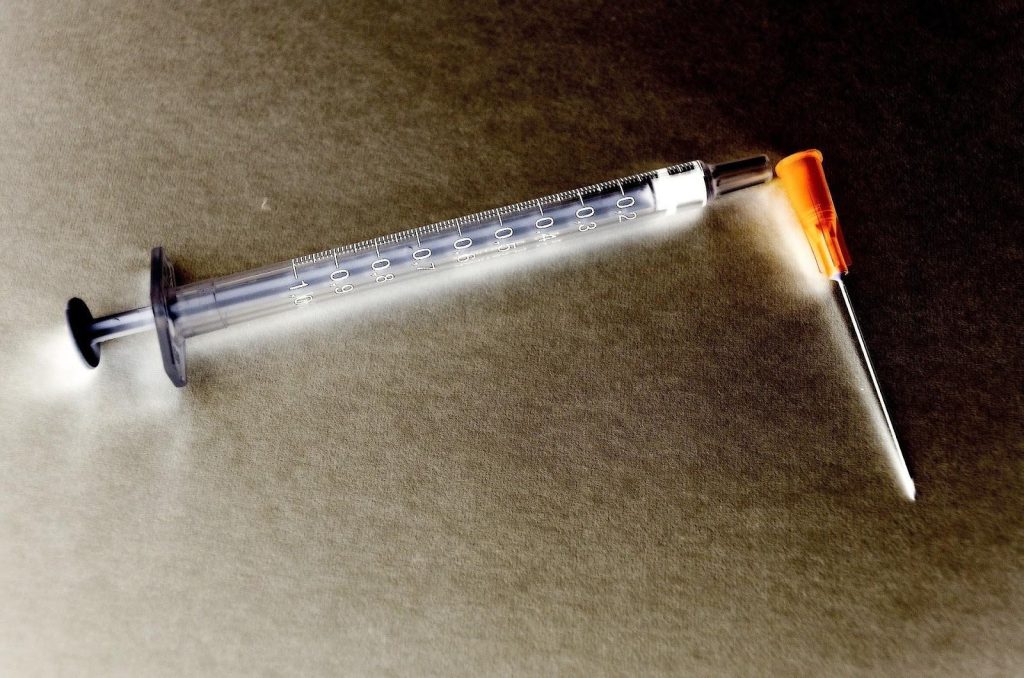
- Perinatal Transmission
Perinatal transmission of HIV, also called mother-to-child transmission of HIV, occurs when the virus is passed from a woman who has acquired HIV to her child during pregnancy, childbirth, or breastfeeding.
If untreated, 25% to 30% of babies born from a mother with HIV will get HIV. However, if mothers are going through HIV treatment, the chances of the baby getting HIV are less than 2%, cutting the risk of transmitting HIV to the baby to about 23%.
Around 1.3 million women who have HIV become pregnant each year, with the defined transmission rate being 25% to 30%, putting the babies at risk of getting lifelong treatments for HIV to live a normal life.
Therefore, every pregnant woman should get tested for HIV before childbirth in order to start the needed treatment and reduce the chances of transmitting HIV to the infant before or after childbirth.
- Oral Sex
Although it is highly unlikely and rare, HIV can be transmitted through oral sex if a person has any sores or bruises inside their mouth. The ejaculate can pass through the mucous membrane and enter the recipient’s bloodstream, exposing them to the HIV virus.
However, if the HIV-positive person is on the treatment and has an untraceable viral load in their blood, this greatly reduces the risk of acquiring HIV.
- Biting And Open-Mouth Kissing
Biting and open-mouth kissing can lead to the transmission of HIV in rare cases when there is contact between broken skin or wounds, and the blood or body fluids can pass through the mucous membrane and enter the healthy person’s bloodstream.
However, there is no risk of transmission through unbroken skin because HIV can not be transmitted through saliva.
Moreover, kissing can lead to HIV if both partners have sores or bleeding gums. This way, the body fluids, mainly blood, that are enough to transmit HIV can be interchanged between the partners and be the source of the acquisition of HIV for a healthy person.
- Touching
Touching includes putting your hands, other body parts, or sex toys in your partner’s penis, vagina, or anus. The only possible HIV transmission cause would be if the body fluids from an infected person touch the mucous membrane or damaged tissue of the person without HIV. This damaged tissue can also exist on your hands or any other body parts due to cuts, sores, or any open wounds.
Other than HIV, you can get many STDs via skin-to-skin contact, including genital herpes, syphilis, or HPV. Touching someone’s anus can also result in hepatitis A and hepatitis B. These are the reasons that make it feasible to get tested for STDs more often than one might think.

- Unhygienic Barbering Procedures
This is a growing concern in various parts of the world because unclean barbering procedures can create a number of opportunities for the transmission of HIV.
Though barbers are not knowingly transmitting these blood-borne pathogens into the bodies of healthy human beings, simple nick caused by a blade or clipper that has been exposed to an HIV-positive person and is carrying his blood residue is enough for the infection to occur and start attacking your immune system before you even know.
The lipid envelope protects the HIV virus from dehydration, enabling it to survive for days on the surface of the barbering instruments. If these instruments are invasive to any other body, they can easily transmit the virus to another human being.
Factors Increasing The Risk of HIV
There are certain factors that may affect the probability of acquiring the HIV virus from someone. These are as follows:
- Viral Load
Viral load is the amount of HIV cells present in the blood of someone who has HIV. The higher the viral load of a person with HIV, the more the chances of transmission of the HIV virus.
It is the highest in amount during the acute phases of HIV and when the person goes untreated later on, leading towards AIDS.
Various HIV treatments significantly reduce the viral load inside your body, even to the amount that it becomes undetectable to the tests. This viral suppression helps them fight against the transmission of disease and live a healthy life with the people around them without being a risk to them.
- Alcohol & Drug Addiction
Being under the influence of various substances can significantly reduce your decisive capabilities, making you prone to falling prey to bad decisions. This can alter and impair your decisions about sex or drug use.
Later on, this unplanned sex can lead to unprotected sex with different sexual partners. This can significantly increase the risk of acquiring HIV. Therefore, it is always advised to keep a contraceptive with you.
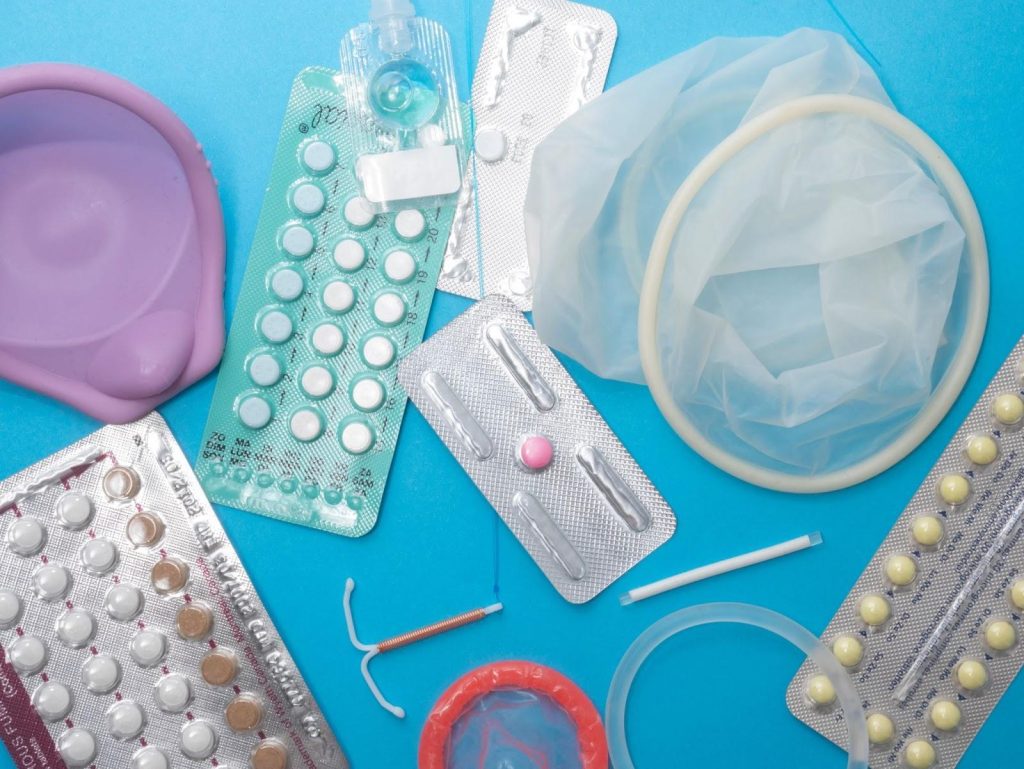
- Other Sexually Transmitted Diseases
If you are already carrying another STD, you are more likely to acquire or transmit HIV. Furthermore, if you have contracted the virus and keep an undetectable viral load, getting an STD will not increase the risk of transmitting HIV. However, STDs can cause other problems.
Using condoms can reduce the risk of acquiring an STD. However, condoms are less effective against STDs that can be transmitted through skin-to-skin contact or by cuts on the skin and sores.
Summary of Recommendations
To avoid such a deadly disease and live a healthy life, consider following our tips and suggestions given below that may come in handy to keep yourself at control and avoid the virus as much as possible.
Suggestions
- Always use contraceptives during sex with untested and unknown partners.
- Get regularly tested for HIV.
- Start early treatment in case you contract an HIV.
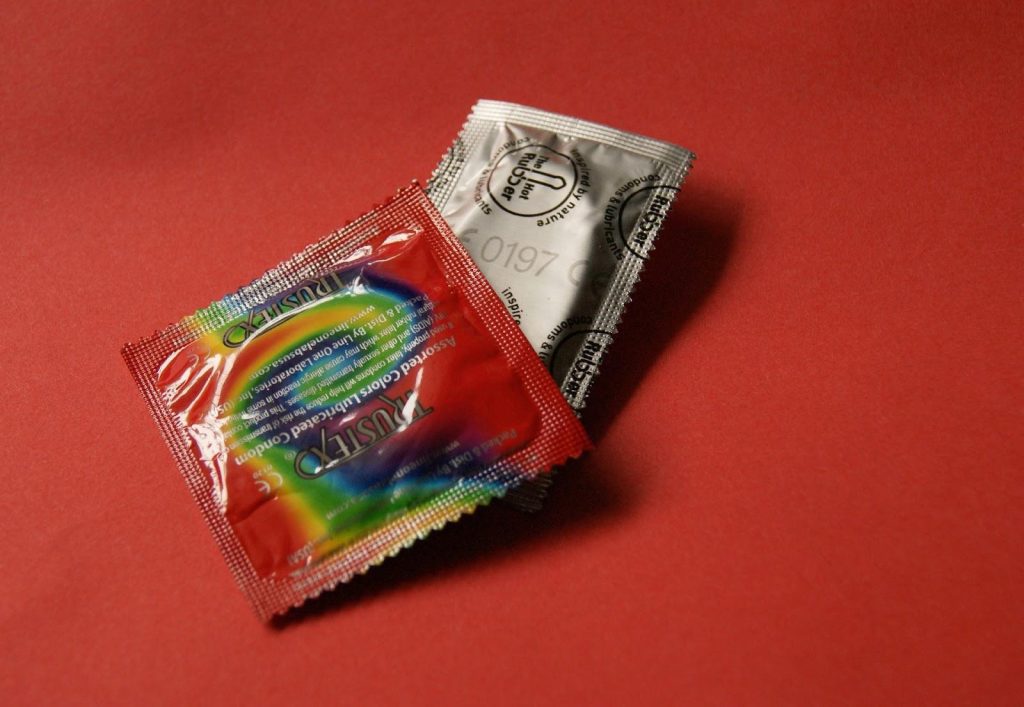
Things To Avoid
- Dont have unprotected sex.
- Refrain from having open-mouth kissing with bleeding gums.
- Cover your wounds adequately to prevent any exposure.
For more information on preventing HIV, check out this link.
Wrapping Up
Health plays a vital role in a human’s life and personality. A person who acquired an STD like HIV finds themselves doomed and very unlucky because they are incurable. However, with modern treatments, preventing these STDs from influencing your life is very easy.
That’s why it’s always better to take precautions early than regret them later. In summary, you must always take part in protected sexual activities and get tested for HIV regularly. These tests are easy and inexpensive, and who knows when they can act as a lifesaver for you or anyone around you that you love!
